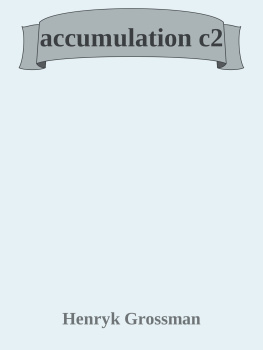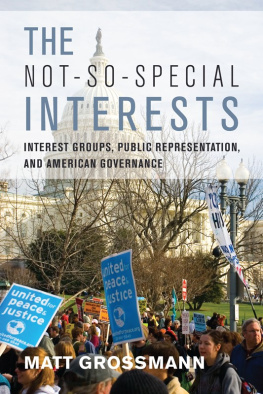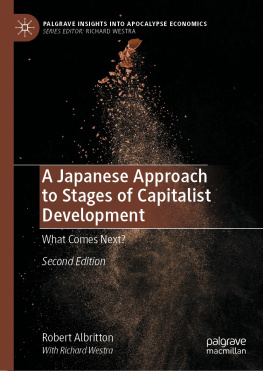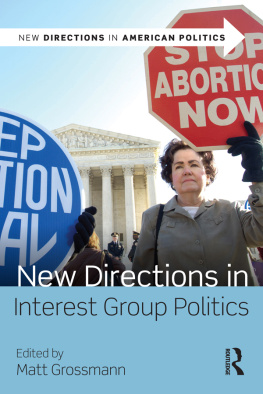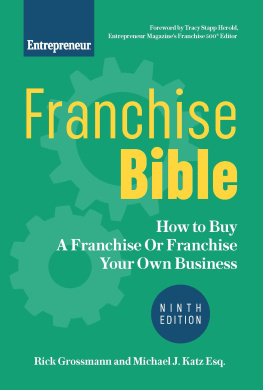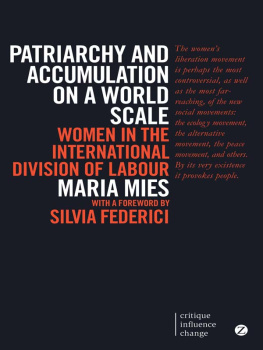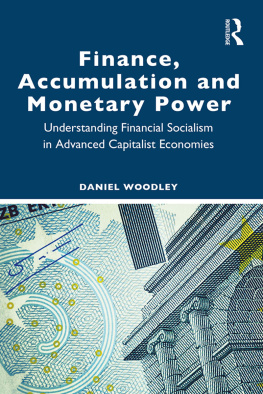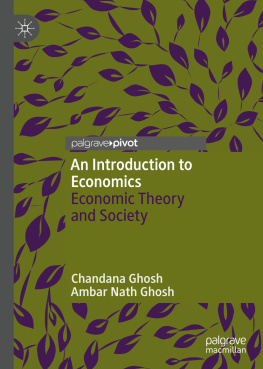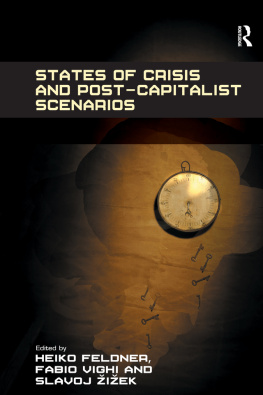Grossmann - Law of Accumulation and Breakdown of the Capitalist System: Being Also a Theory of Crises
Here you can read online Grossmann - Law of Accumulation and Breakdown of the Capitalist System: Being Also a Theory of Crises full text of the book (entire story) in english for free. Download pdf and epub, get meaning, cover and reviews about this ebook. year: 1992, publisher: Pluto Press, genre: Politics. Description of the work, (preface) as well as reviews are available. Best literature library LitArk.com created for fans of good reading and offers a wide selection of genres:
Romance novel
Science fiction
Adventure
Detective
Science
History
Home and family
Prose
Art
Politics
Computer
Non-fiction
Religion
Business
Children
Humor
Choose a favorite category and find really read worthwhile books. Enjoy immersion in the world of imagination, feel the emotions of the characters or learn something new for yourself, make an fascinating discovery.

Law of Accumulation and Breakdown of the Capitalist System: Being Also a Theory of Crises: summary, description and annotation
We offer to read an annotation, description, summary or preface (depends on what the author of the book "Law of Accumulation and Breakdown of the Capitalist System: Being Also a Theory of Crises" wrote himself). If you haven't found the necessary information about the book — write in the comments, we will try to find it.
Grossmann: author's other books
Who wrote Law of Accumulation and Breakdown of the Capitalist System: Being Also a Theory of Crises? Find out the surname, the name of the author of the book and a list of all author's works by series.
Law of Accumulation and Breakdown of the Capitalist System: Being Also a Theory of Crises — read online for free the complete book (whole text) full work
Below is the text of the book, divided by pages. System saving the place of the last page read, allows you to conveniently read the book "Law of Accumulation and Breakdown of the Capitalist System: Being Also a Theory of Crises" online for free, without having to search again every time where you left off. Put a bookmark, and you can go to the page where you finished reading at any time.
Font size:
Interval:
Bookmark:

The Law of Accumulation
and Breakdown of the
Capitalist System
The Law of Accumulation
and Breakdown of the
Capitalist System
Being also a Theory of Crises
HENRYK GROSSMANN
Translated and abridged by Jairus Banaji
Foreword and Introduction by Tony Kennedy

This edition first published in English in 1992 by
Pluto Press, 345 Archway Road, London N6 5AA
First published in German in 1929 as
Das Akkumulations Zusammenbruchsgesetz des
kapitalistischen Systems (Zugleich eine Krisentheorie) ,
by C L Hirschfeld, Leipzig; reprinted 1970 by Verlag Neue
Kritik, Frankfurt am Main.
Translation and selection copyright 1979 Jairus Banaji
Foreword and Introduction copyright 1992 Tony Kennedy
This edition copyright Pluto Press 1992
British Library Cataloguing in Publication Data
Grossmann, Henryk
The law of accumulation and breakdown of the capitalist system.
1. Marxism
I. Title
335.4
ISBN 978 0 7453 0458 8 hardback
ISBN 978 0 7453 0459 5 paperback
ISBN 978 1 7837 1882 5 PDF eBook
ISBN 978 1 7837 1844 3 EPUB eBook
ISBN 978 1 7837 1845 0 Kindle eBook
Library of Congress Cataloging-in-Publication Data
Grossmann, Henryk, 18811950.
[Akkumulations und Zusammenbruchsgesetz das kapitalistischen Systems. English]
The law of accumulation and breakdown of the capitalist system : being also a theory of crises / Henryk Grossmann; translated and abridged by Jairus Banaji; foreword and introduction by Tony Kennedy.
p. cm.
Translation of: Das Akkumulations Zusammenbruchsgesetz des kapitalistischen Systems (Zugleich eine Krisentheorie)CIP t.p. verso.
Includes bibliographical references and index.
ISBN 0745304583 (hb)
ISBN 0745304591 (pb)
1. Capitalism. 2. Capital. 3. Saving and investment.
4. Business cycles. 5. Marxian economics. I. Banaji,
Jairus,
1947 . II. Title.
HB501.G713 1992
330.12'2dc20 9126181
CIP
Typeset in 10 on 12pt Times by Stanford DTP Services, Milton Keynes Printed on Demand by Antony Rowe Ltd
Contents
Foreword
TONY KENNEDY
Henryk Grossmann and the Theory of Capitalist Collapse
TONY KENNEDY
For Rana Sen (19521985)
Foreword
TONY KENNEDY
Henryk Grossmanns The Law of Accumulation and Breakdown of the Capitalist System was first published in 1929 in Leipzig. Both date and place are highly significant. This study of capitalist collapse was published on the eve of the Wall Street crash that preceded the great world depression of the 1930s, the most profound and wide-reaching crisis in the history of capitalism. It was also published in Germany, the country at the epicentre of the crisis of Europe and the wider international balance of power, a crisis only resolved through a descent into fascism and war and intercontinental barbarism on a scale unprecedented in human history.
It was an inauspicious moment for the publication of a major contribution to Marxist theory. The international working-class upsurge that followed the end of the First World War and had received a powerful impetus from the Russian Revolution had everywhere been contained by the mid-1920s. The Stalinist degeneration of the Soviet Union and the official communist movement internationally removed the initiative from the left and put it on the defensive against the rising forces of reaction. In this climate of defeat and demoralisation, Grossmanns work was destined at first to receive a universally hostile response, and then to be ignored for decades.
Grossmann was already close to 50 when his major work was published. He was born in 1881 in Cracow, in what was then Austrian Galicia, into a Jewish mine-owning family. He studied at Vienna, under both the conservative economist Bohm-Bawerk and the Marxist historian Carl Grunberg. After the collapse of the Austro-Hungarian empire in 1918 he became a professional economist under the newly constituted Polish state. He had moved towards socialism during the First World War and, sympathetic to the Russian Revolution, he afterwards became a member of the Polish Communist Party. In 1922 he was appointed professor of economics at Warsaw university, where he remained until harassment from the reactionary Pilsudski regime forced him to emigrate in 1925.
Always more of an academic than a political activist, it seems that Grossmann never joined the Communist Party in Germany, though he remained a loyal defender of the Soviet Union.
In the 1930s and 1940s Grossmann found himself increasingly marginalised. He became embroiled in disputes with his colleagues in the Frankfurt school as they either took up revisionist economic theories or moved away from the critique of political economy towards studies of psychology and aesthetics. As they became increasingly hostile towards Stalinism, he became more isolated in his support for the Soviet Union. The biggest problem however was the impact of the triumph of Hitler on the Frankfurt school. Forced to flee to Paris in 1933, Grossmann moved again to London in 1935 and then to the USA in 1937, when the remnants of the Frankfurt school took refuge in New York. With his family in Europe and at odds with his former colleagues, Grossmann lived a lonely and isolated existence. He suffered a stroke and continuing ill-health before his return to East Germany at the end of the war. In 1949 he was offered a professorial post in Leipzig, but died the following year, at the age of 69.
Grossmanns personal tragedy was symbolic of the fate of a generation of Marxists in the inter-war period. His work on breakdown was repudiated by the social democrat Braunthal, by the Stalinist Varga and by the left communist Pannekoek with more or less equal vehemence and with strikingly similar misinterpretations of his central arguments. One of the few people who recognised the value of Grossmanns work was the left communist Paul Mattick, who continued to uphold the Marxist theory of breakdown up to his death in 1981.
Born in Germany in 1904, Mattick was trained as a tool and die maker and became active in revolutionary socialist politics in Berlin and Cologne after the First World War. In 1926 he emigrated to the USA where he became an influential Marxist propagandist over the next half century. As an exponent of a libertarian approach that owed more to Rosa Luxemburg and the Dutch left communists than to Lenin and the Bolsheviks, Mattick was unsympathetic to Grossmans political allegiance to the Soviet Union. Yet in 1933 he defended the adoption of Grossmanns breakdown theory by his small group, as he put it, without, in general, sufficiently knowing or even wanting to take account of Grossmanns political interpretation of Whatever his reservations about Grossmanns politics, Mattick endorsed his theory and he forcefully repudiated the criticism that came from all sides that it advanced a mechanical and fatalistic conception of breakdown.
Matticks writings, notably his Marx and Keynes , first published in 1969, helped to make Marxs theory of breakdown, and Grossmanns elaboration of it, available in English to a new generation of Marxists. With the re-emergence of world recession in the 1970s, this tradition contributed to a revival of Marxist crisis theory and a new interest in Grossmann. Just as the financial crash of 1929 led to the depression of the 1930s, the international stock exchange crash of October 1987 was a harbinger of the global recessionary trends gathering momentum in the early 1990s. The persistent stagnation and decay of global capitalism provides a powerful vindication of Marxs critique of capitalist society. Grossmanns unsurpassed elaboration of this critique offers a rigorous scientific basis from which to interpret contemporary trends.
Font size:
Interval:
Bookmark:
Similar books «Law of Accumulation and Breakdown of the Capitalist System: Being Also a Theory of Crises»
Look at similar books to Law of Accumulation and Breakdown of the Capitalist System: Being Also a Theory of Crises. We have selected literature similar in name and meaning in the hope of providing readers with more options to find new, interesting, not yet read works.
Discussion, reviews of the book Law of Accumulation and Breakdown of the Capitalist System: Being Also a Theory of Crises and just readers' own opinions. Leave your comments, write what you think about the work, its meaning or the main characters. Specify what exactly you liked and what you didn't like, and why you think so.


